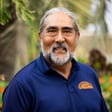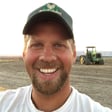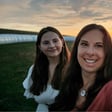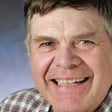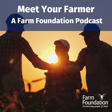
5. Farm Foundation's Meet Your Farmer Podcast with Hannah Borg
Farm Foundation’s Meet Your Farmer podcast featured Hannah Borg in season1, episode 5.
Hannah is a sixth-generation farmer from Wakefield, Nebraska. In 2019, she returned home to the family business, Borg Farms. She and her family raise crops, cattle, and chickens for Costco. She holds a degree in agricultural communications from the University of Nebraska-Lincoln. She is in the 2024 cohort of Farm Foundation's Young Farmer Accelerator program.
In the episode, she discusses what it was like to grow up on the farm, navigating the transitions between generations, how she came to be raising chickens for Costco, among many other topics.
Find Amanda on Instagram: itshannahborg
Music: "Country Roads" by Sergii Pavkin from Pixabay
Reach us at communication@farmfoundation.org.
